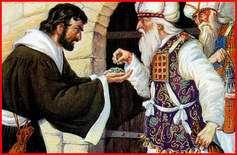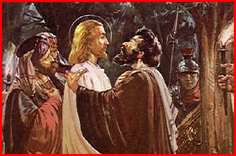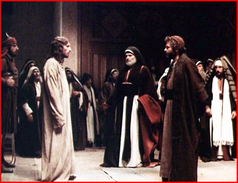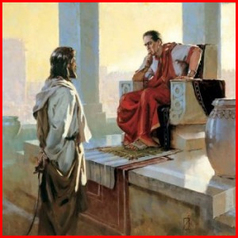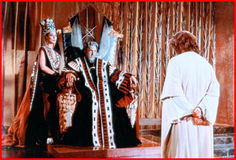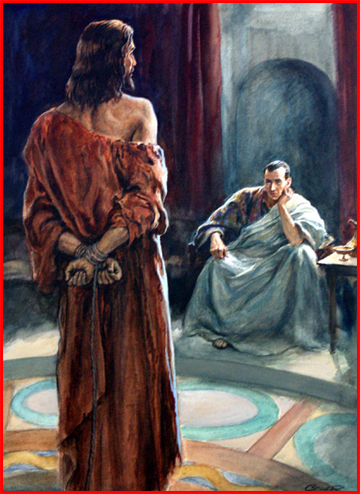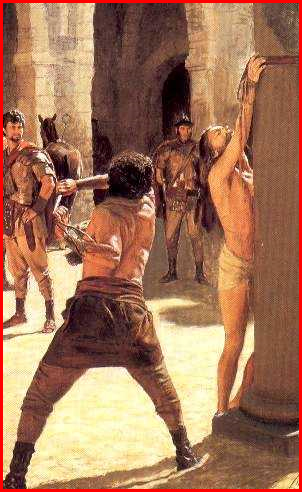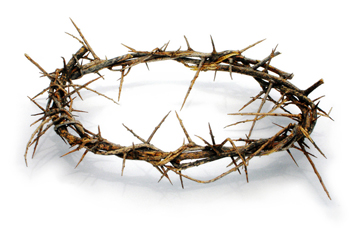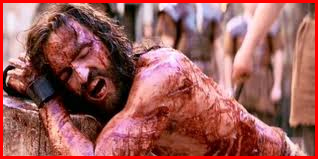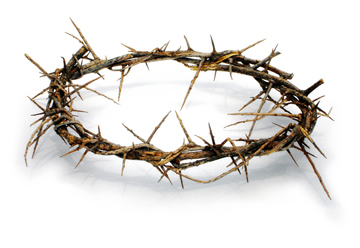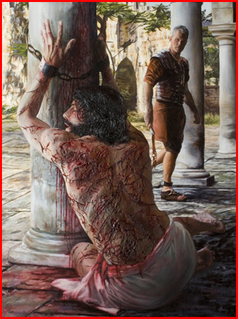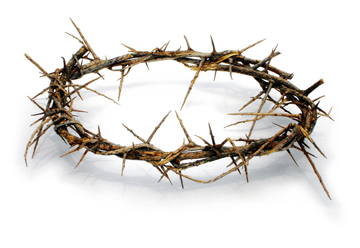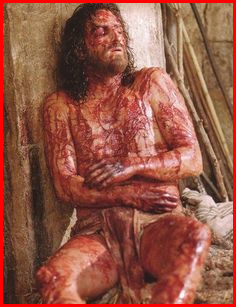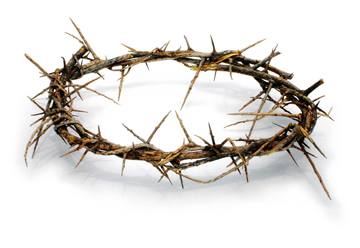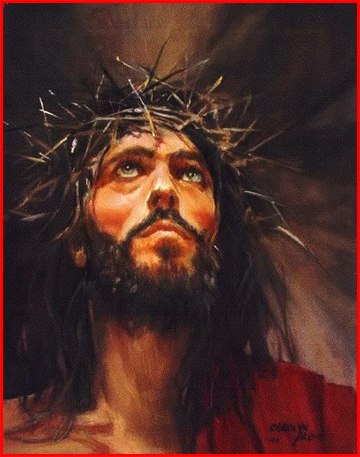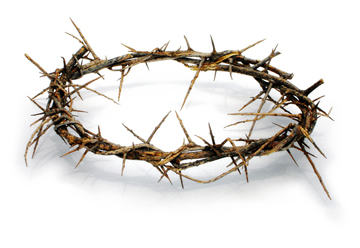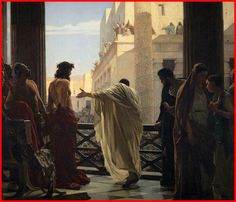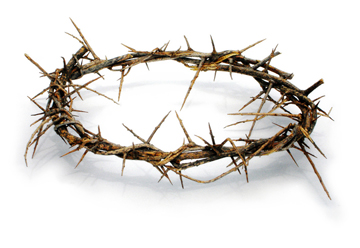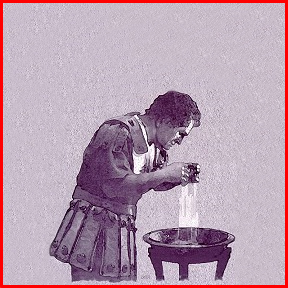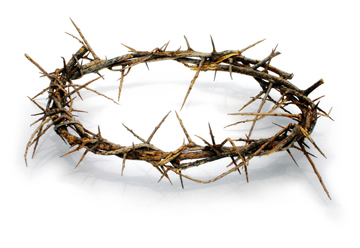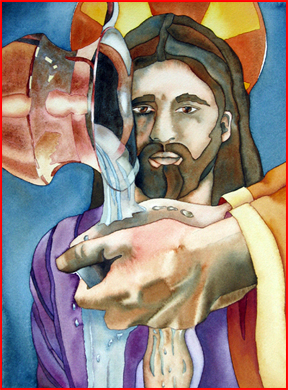| Devotion to Our Lady |
|
- Homepage
-
Daily Thoughts
- 2023 October Daily Thoughts
- Daily Thoughts Lent 2020
- Daily Thoughts for Advent 2019
- Daily Thoughts for October 2019
- Daily Thoughts for September 2019
- Daily Thoughts for August 2019
- Daily Thoughts for July
- Daily Thoughts for June
- Daily Thoughts for Easter 2019
- Daily Thoughts for Lent 2019
- Daily Thoughts for Christmas
- Daily Thoughts Easter 2022
- Sacred Heart
- Holy Ghost
-
Spiritual Life
- Holy Mass Explained
- First Friday Devotions
- First Saturday Devotions
- The Mercy of God
- Vocations
- The Path Everyone Must Walk >
- Gift of Failure
- Halloween or Hell-O-Ween?
- Ignatian Spiritual Exercises >
- Meditation is Soul-Saving
- Spiritual Communion
- Miraculous Medal
- Enrollment in Miraculous Medal
- St. Benedict Medal
- Holy Water
- Advice on Prayer
- Your Daily Mary
-
Prayers
- September Devotions
- Seven Sorrows of Our Lady
-
Novenas
>
- NV-Help of Christians
- NV-Nativity of Our Lady
- NV-Seven Sorrows
- NV- Sorrowful Heart
- NV-Pope St Pius X
- NV-La Salette
- NV-St Michael Archangel
- NV-Immaculate Heart
- NV-Assumption
- NV-Novena for Fathers
- NV-Novena for Your Mother
- NV-St Raphael Archangel
- NV-Souls in Purgatory
- NV-All Saints Day
- NV-Christ the King
- NV-Divine Motherhood
- NV-Guardian Angels
- NV-Rosary
- NV-Mirac Med
- NV- Imm Conc
- NV - Guadalupe
- NV - Nativity of Jesus
- NV-Epiphany
- NV-OL Good Success
- NV-Lourdes
- NV-St Patrick
- NV-St Joseph
- NV-Annunciation
- NV-St Louis de Montfort
- NV-OL Good Counsel
- NV-Last Supper
- NV-Passion
- NV-Pentecost
- NV-Ascension
- NV-Sacred Heart
- NV-Sacred Heart & Perpetual Help
- NV-Corpus Christi
- NV-OL of Perpetual Help
- NV-Queenship BVM
- NV-OL of Mount Carmel
- NV-St Mary Magdalen
- NV- Im Hrt
- August Devotions to IHM
- Immaculate Heart of Mary
- Litany of Dependence
- Prayers to St Mary Magdalen
- Prayers in Times of Sickness Disease & Danger
- Holy Souls in Purgatory
- Meditations on the Litany of Our Lady
- Special Feast Days
- Prayers to Mary (Mon-Sun)
- Litanies to Our Lady >
- Various & Special Needs
- Our Lady of the Rosary
- Our Lady of Mt. Carmel
- Our Lady of Perpetual Help
- Our Lady of Guadalupe
- Other titles of Our Lady
-
Rosary
- Downloads
- Consecration
- Easter Season
-
Holy Week
- Last Seven Words of Jesus >
- Characters of Passion >
- The Last Days of Christ
- Before Palm Sunday
- Palm Sunday
- Monday in Holy Week
- Tuesday in Holy Week
- Wednesday in Holy Week
- Holy Thursday (Last Supper)
- Holy Thursday (Agony & Arrest)
- Night Vigil with Christ
- Good Friday (Pilate & Herod)
- Good Friday (Way of Cross & Crucifixion)
- Saturday in Holy Week
-
Lent
- Ideas for Lent
- Daily Lenten Planner
- Daily Lenten Liturgy
- From Cold to Hot
- Lent with Aquinas
- Lent with Dom Gueranger
- Virtues for Lent
- History of Penance
- How Expensive is Sin?
- Confession of Sins
- Letter to Friends of the Cross
- Sermons for Lent
- Stations of the Cross >
- Lenten Prayers
- 7 Penitential Psalms
- Lenten Psalms SUN
- Lenten Psalms MON
- Lenten Psalms TUE
- Lenten Psalms WED
- Lenten Psalms THU
- Lenten Psalms FRI
- Lenten Psalms SAT
- Lenten Laughs
- Septuagesima
-
Christmas
- Epiphany Explained
- Suggestions for Christmas
- Food For Thought
- Christmas with Aquinas
- Christmas with Dom Gueranger
- Christmas Prayers
- Candles & Candlemas
- Christmas Sermons
- Christmas Prayers SUN
- Christmas Prayers MON
- Christmas Prayers TUE
- Christmas Prayers WED
- Christmas Prayers THU
- Christmas Prayers FRI
- Christmas Prayers SAT
- Twelve Days of Christmas >
-
Advent Journey
- Purgatory
- Christ the King
- Legion of Mary
- Scapular
-
Saints
-
Martyrs for the Faith
>
- Your Daily Martyr >
- All 365 Days of Martyrs
- Cristeros
- St Valentine & Valentine's Day
- Martyrs--Thomas Becket
- Martyrs--John the Apostle
- Holy Machabees
- Age of Martyrdom
- Carmelites of Compiegne
- Martyrs--Peter & Paul
- Martyrs--John the Baptist
- Martyrs--Andrew
- Martyrs--James the Great
- Martyrs--North American
- Martyrs--Seven Holy Sleepers
- Martyrs--Afra
- School of Martyrdom
- Martyrs--Christina
- Desert Saints >
- Saints for Sinners >
- Saints of Mary >
- History of All Saints Day
-
Martyrs for the Faith
>
- Precious Blood
- Synod 2023
-
Catechism
- Catechism Lesson 1
- Catechism Lesson 2
- Catechism Lesson 3
- Catechism Lesson 4
- Catechism Lesson 5
- Catechism Lesson 6
- Catechism Lesson 7
- Catechism Lesson 8
- Catechism Lesson 9
- Catechism Lesson 10
- Catechism Lesson 11
- Catechism Lesson 12
- Catechism Lesson 13
- Catechism Lesson 14
- Catechism Lesson 15
- Catechism Lesson 16
- Catechism Lesson 17
- Catechism Lesson 18
- Catechism Lesson 19
- Catechism Lesson 20
- Catechism Lesson 21
- Catechism Lesson 22
- Bible Study
-
Calendar
- Miracles
- Apparitions
- Shrines
- Prophecies
- Angels Homepage
- Hell
-
Church Crisis
- Conspiracy Theories
- Amazon Synod 2019 >
- Liberalism & Modernism
- Modernism--Encyclical Pascendi
- Modernism & Children
- Modernism--Documents
- The Francis Pages
- Church Enemies on Francis
- Francis Quotes
- Amoris Laetitia Critique
- Danger of Ignorance (Pius X)
- Restore all In Christ (Pius X)
- Catholic Action (Pius X)
- Another TITANIC Disaster?
- The "Errors of Russia"
- CRISIS PRAYERS
- Election Novena 2024
- The Anger Room
- War Zone
- Life of Mary
- Spiritual Gym
- Stupidity
- Coronavirus and Catholicism
- History & Facts
- Books
- Catholic Family
- Children
- Daily Quiz
-
Novena Church & Pope
- Day 01 Church-Pope Novena
- Day 02 Church-Pope Novena
- Day 03 Church-Pope Novena
- Day 04 Church-Pope Novena
- Day 05 Church-Pope Novena
- Day 06 Church-Pope Novena
- Day 07 Church-Pope Novena
- Day 08 Church-Pope Novena
- Day 09 Church-Pope Novena
- Day 10 Church-Pope Novena
- Day 11 Church-Pope Novena
- Day 12 Church-Pope Novena
- Day 13 Church-Pope Novena
- Day 14 Church-Pope Novena
- Day 15 Church-Pope Novena
- Day 16 Church-Pope Novena
- Day 17 Church-Pope Novena
- Day 18 Church-Pope Novena
- Day 19 Church-Pope Novena
- Day 20 Church-Pope Novena
- Day 21 Church-Pope Novena
- Day 22 Church-Pope Novena
- Day 23 Church-Pope Novena
- Day 24 Church-Pope Novena
- Day 25 Church-Pope Novena
- Day 26 Church-Pope Novena
- Day 27 Church-Pope Novena
- Day 28 Church-Pope Novena
- Day 29 Church-Pope Novena
- Day 30 Church-Pope Novena
- Day 31 Church-Pope Novena
- Day 32 Church-Pope Novena
- Day 33 Church-Pope Novena
- Day 34 Church-Pope Novena
- Day 35 Church-Pope Novena
- Day 36 Church-Pope Novena
- Day 37 Church-Pope Novena
- Day 38 Church-Pope Novena
- Day 39 Church-Pope Novena
- Day 40 Church-Pope Novena
- Day 41 Church-Pope Novena
- Day 42 Church-Pope Novena
- Day 43 Church-Pope Novena
- Day 44 Church-Pope Novena
- Day 45 Church-Pope Novena
- Day 46 Church-Pope Novena
- Day 47 Church-Pope Novena
- Day 48 Church-Pope Novena
- Day 49 Church-Pope Novena
- Day 50 Church-Pope Novena
- Day 51 Church-Pope Novena
- Day 52 Church-Pope Novena
- Day 53 Church-Pope Novena
- Day 54 Church-Pope Novena
- Penance Novena
- Daily WeAtheR Forecast
| 1st Station | 2nd Station | 3rd Station | 4th Station | 5th Station | 6th Station | 7th Station |
| 8th Station | 9th Station | 10th Station | 11th Station | 12th Station | 13th Station | 14th Station |
| 8th Station | 9th Station | 10th Station | 11th Station | 12th Station | 13th Station | 14th Station |
The Greatest and Most Important Time in the Church's Liturgical Year
CLICK ON ANY LINK BELOW
Also lots of LENTEN & HOLY WEEK DOWNLOADS on the downloads page (click here)
LENTEN PAGES
| ASH WEDNESDAY COUNTDOWN | LENT (MAIN PAGE) | DAILY THOUGHTS | DAILY LENTEN LITURGY | DAILY LENTEN PLANNER |
| LENTEN PRAYERS | THE 7 PENITENTIAL PSALMS | IDEAS FOR PENANCE | LENT WITH AQUINAS | LENT WITH DOM GUERANGER |
| HISTORY OF PENANCE | PENANCES OF THE SAINTS | HOW EXPENSIVE IS SIN? | CONFESSION OF SINS | ARE FEW SOULS SAVED? |
| VIRTUES FOR LENT | FROM COLD TO HOT | LENTEN LAUGHS | | SERMONS FOR LENT | LETTER TO FRIENDS OF THE CROSS |
| STATIONS OF THE CROSS (INDIVIDUALLY) | ALL 14 STATIONS OF THE CROSS | LITANIES FOR PASSIONTIDE |
| THE LAST DAYS OF CHRIST | SPECIAL HOLY WEEK PAGES |
LITURGICAL PRAYERS FOR EACH DAY OF THE WEEK DURING LENT
| Sundays of Lent | Mondays of Lent | Tuesdays of Lent | Wednesdays of Lent | Thursdays of Lent | Fridays of Lent | Saturdays of Lent |
HOLY WEEK PAGES
| Holy Week Main Page | Before Palm Sunday | Palm Sunday | The Last Days of Christ | Holy Thursday Last Supper Novena | Good Friday Passion Novena |
| Monday of Holy Week | Tuesday of Holy Week | Wednesday of Holy Week | Holy Thursday (Last Supper) | Holy Thursday (Agony & Arrest) |
| Night Vigil With Christ | Good Friday (Pilate & Herod) | Good Friday (Way of Cross & Crucifixion) | Holy Saturday |
THE CHIEF CHARACTERS OF THE PASSION
| Characters of the Passion Mainpage | The Sanhedrin | Pharisees | Scribes | Saducees | Jewish Crowd | Roman Rulers |
| Judas | Annas & Caiphas | Pontius Pilate | Herod | Barabbas | Dismas the Good Thief | St. Peter | St. John | Mary Magdalen |
THE FOURTEEN STATIONS OF THE CROSS
| Introduction to the Stations of the Cross | Short Version of the Stations of the Cross (all 14 on one page) | 1st Station | 2nd Station | 3rd Station |
| 4th Station | 5th Station | 6th Station | 7th Station | 8th Station | 9th Station | 10th Station | 11th Station | 12th Station | 13th Station | 14th Station |
THE LAST SEVEN WORDS OF JESUS FROM THE CROSS
| Seven Last Words on the Cross (Introduction) | The 1st Word on the Cross | The 2nd Word on the Cross | The 3rd Word on the Cross |
| The 4th Word on the Cross | The 5th Word on the Cross | The 6th Word on the Cross | The 7th Word on the Cross |
PRAYERS AND DEVOTIONS TO THE SEVEN SORROWS OF OUR LADY
| Seven Sorrows Meditations | Short Prayers & Short Seven Sorrows Rosary | Longer Seven Sorrows Rosary |
| 1st Sorrow of Our Lady | 2nd Sorrow of Our Lady | 3rd Sorrow of Our Lady | 4th Sorrow of Our Lady |
| 5th Sorrow of Our Lady | 6th Sorrow of Our Lady | 7th Sorrow of Our Lady |
| Novena #1 to the Sorrowful Heart of Mary | Novena #2 to the Sorrowful Heart of Mary |
CLICK ON ANY LINK BELOW
Also lots of LENTEN & HOLY WEEK DOWNLOADS on the downloads page (click here)
LENTEN PAGES
| ASH WEDNESDAY COUNTDOWN | LENT (MAIN PAGE) | DAILY THOUGHTS | DAILY LENTEN LITURGY | DAILY LENTEN PLANNER |
| LENTEN PRAYERS | THE 7 PENITENTIAL PSALMS | IDEAS FOR PENANCE | LENT WITH AQUINAS | LENT WITH DOM GUERANGER |
| HISTORY OF PENANCE | PENANCES OF THE SAINTS | HOW EXPENSIVE IS SIN? | CONFESSION OF SINS | ARE FEW SOULS SAVED? |
| VIRTUES FOR LENT | FROM COLD TO HOT | LENTEN LAUGHS | | SERMONS FOR LENT | LETTER TO FRIENDS OF THE CROSS |
| STATIONS OF THE CROSS (INDIVIDUALLY) | ALL 14 STATIONS OF THE CROSS | LITANIES FOR PASSIONTIDE |
| THE LAST DAYS OF CHRIST | SPECIAL HOLY WEEK PAGES |
LITURGICAL PRAYERS FOR EACH DAY OF THE WEEK DURING LENT
| Sundays of Lent | Mondays of Lent | Tuesdays of Lent | Wednesdays of Lent | Thursdays of Lent | Fridays of Lent | Saturdays of Lent |
HOLY WEEK PAGES
| Holy Week Main Page | Before Palm Sunday | Palm Sunday | The Last Days of Christ | Holy Thursday Last Supper Novena | Good Friday Passion Novena |
| Monday of Holy Week | Tuesday of Holy Week | Wednesday of Holy Week | Holy Thursday (Last Supper) | Holy Thursday (Agony & Arrest) |
| Night Vigil With Christ | Good Friday (Pilate & Herod) | Good Friday (Way of Cross & Crucifixion) | Holy Saturday |
THE CHIEF CHARACTERS OF THE PASSION
| Characters of the Passion Mainpage | The Sanhedrin | Pharisees | Scribes | Saducees | Jewish Crowd | Roman Rulers |
| Judas | Annas & Caiphas | Pontius Pilate | Herod | Barabbas | Dismas the Good Thief | St. Peter | St. John | Mary Magdalen |
THE FOURTEEN STATIONS OF THE CROSS
| Introduction to the Stations of the Cross | Short Version of the Stations of the Cross (all 14 on one page) | 1st Station | 2nd Station | 3rd Station |
| 4th Station | 5th Station | 6th Station | 7th Station | 8th Station | 9th Station | 10th Station | 11th Station | 12th Station | 13th Station | 14th Station |
THE LAST SEVEN WORDS OF JESUS FROM THE CROSS
| Seven Last Words on the Cross (Introduction) | The 1st Word on the Cross | The 2nd Word on the Cross | The 3rd Word on the Cross |
| The 4th Word on the Cross | The 5th Word on the Cross | The 6th Word on the Cross | The 7th Word on the Cross |
PRAYERS AND DEVOTIONS TO THE SEVEN SORROWS OF OUR LADY
| Seven Sorrows Meditations | Short Prayers & Short Seven Sorrows Rosary | Longer Seven Sorrows Rosary |
| 1st Sorrow of Our Lady | 2nd Sorrow of Our Lady | 3rd Sorrow of Our Lady | 4th Sorrow of Our Lady |
| 5th Sorrow of Our Lady | 6th Sorrow of Our Lady | 7th Sorrow of Our Lady |
| Novena #1 to the Sorrowful Heart of Mary | Novena #2 to the Sorrowful Heart of Mary |
THE FIRST STATION : JESUS IS CONDEMNED TO DEATH
“St. Augustine assures us that there is no spiritual exercise more fruitful or more useful than the frequent reflection on the sufferings of Our Lord. St. Albert the Great, who had St. Thomas Aquinas as his student, learned in a revelation that by simply thinking of or meditating on the Passion of Jesus Christ, a Christian gains more merit than if he had fasted on bread and water every Friday for a year, or had beaten himself with the discipline once a week till blood flowed, or had recited the whole Book of Psalms every day” (The Secret of the Rosary, St. Louis Marie de Montfort, “Twenty-Eighth Rose”).
|
Opening Thoughts
This first station is all about judgments. What am I like in my judgements? Have I, like the Jews, condemned a person out of my own self-love—out of jealousy, pride, ambition or even hurt feelings? Have I, like Pilate, seen others unjustly accused or condemned and then failed to help them? Do I, like the crowd, allow myself to be influenced by the words of others—even though there is not sufficient evidence to back up those words? Woe to Pilate who disdainfully said: "What is truth?" Jesus says that He is the Truth and whatever injustice we do unto others, Jesus said that we do that injustice unto Him. Let us make amends for our own false judgements and injustices and then never commit them again. Woe to the Jews who cry out: "His blood be upon us!" God's justice visited them less than forty years later, when the Romans slew nearly a million Jews as they destroyed Jerusalem. As we do unto others, so shall it be done unto us. The Sentence Their voices prevailed! Pilate had gone through many phases before he had come to this. Never before in his life had he been so utterly tried and found wanting. He was Roman Governor of Palestine; he had held the office for years; in the eyes, then, of the authorities in Rome he was suited for the purpose. Judaea was a province not easy to rule, yet with all his mistakes Pilate had succeeded in ruling it. On other occasions he had done as he would with this people and they had submitted; he had learnt to despise them, as he had deemed a strong Roman should. When that morning they had brought Jesus before him he had treated them with that same contempt; when they had urged their demand, he had sent them to another, a more petty judge, to settle their claim for them. Yet all the time he had wavered; something had told him from the first that this was no ordinary mob affair. He had seen Jesus alone, and the interview had convinced him that he was dealing with a just and innocent Man. Then his contempt had begun to change to fear. Then he knew that this was a case, not of justice but of hatred; and hatred is always unjust, and merciless, and cruel. Confusion and Fear During all this time Jesus had stood before them all, submissive till submission became weird, saying not a word on His own behalf, making no sign that showed indignation, or protest, or insult, or weakness, scarcely even concern; He stood there, the only one calm and self-possessed in that gathering. By His manner alone a keen judge would have known Him to be guiltless; it seemed to prove more, that there was within Him a power which He could use if He would, but which, for some reason that Pilate could not understand, He refused to exercise. Pilate feared the mob howling in the street beneath him; he feared too this silent Being standing on the steps beside him, the like of whom he had never had to judge in all his experience of men. He dared not yet pass the final sentence; before he yielded he must save himself from the consequences of an unjust act, whether from Caesar in Rome, or from this mysterious King whose kingdom was not of this world. Like all unbelievers, Pilate was superstitious; brave it as he might, in his heart he feared he knew not what. Human Respect—Ruled by Popular Opinion Meanwhile the clamor in the street grew louder. It had risen so as to be threatening, and must needs be appeased. It was true he could have turned his soldiers on the crowd and dispersed it, but he hesitated. He had done something of the kind before, and had been made to repent his indiscretion; these Asiatics were a people that did not forgive or forget. Somehow he must humor them; at the same time he must justify himself in his own mind. So far as he could he would free himself from all responsibility. This he had endeavored to do during all the morning; since there now seemed no escape, since in the end it seemed inevitable that he must speak the final word, he would throw the responsibility for that word on others. He argued with himself. These violent disturbers of the peace insisted. It was his duty to keep the peace, especially at such a time as this, when Jerusalem was full of strangers from everywhere, and was not the public peace of far greater importance than the life of any single man? Let Jesus go free, and many lives might be lost in the disturbance; almost certainly the life of Jesus Himself, in any case. Let Him die, and many would be saved, peace would be restored and the Paschal season would pass off tranquilly. He would yield, it would be better in the end; thus did Pilate, by another route, arrive at the conclusion of Caiphas: “It were better that one man should die for the people.” Vain False Reasoning But his yielding should be with all the formality that became one in his position. A Roman judge, whatever he might decree, must not be accused of injustice; a Roman judge could do no wrong. So he went through an empty form. As Caiphas long ago had settled the scruples of the priests by the invention of a formula, so would Pilate settle the scruples of his own worldly conscience by the invention of a form. He would wash his hands of the whole affair; he little dreamt that his act would establish a metaphor for all time to come. He called an attendant boy; he bade him bring water and a basin, as if for some ablution which would have seemed nothing strange. As he put his hands into the water, he spoke words which made his action symbolic. He had already declared his Prisoner innocent; now he would absolve himself also from all guilt. If guilt rested on anyone, it lay on those who were driving him to do what he abhorred. Worldly Pilate—but is he the only one? Pilate the poor worldling, keeping up appearances at any cost before the eyes of men The coward affecting to be brave, the anxious affecting to be careless, the grossly cruel affecting to be just, the brutally cruel affecting to be humane, the guilty affecting to be honest, the self-seeking affecting to be eaten up with zeal for law and order; whatever he may be in his own heart and conscience, outwardly his hands must be clean, he must stand well and be approved before the tribunal of men. We cannot hate Pilate; he is too weak and worldly-wise for hatred. But it is hard not to despise him for a cunning self-deceiver, one who in the end might persuade himself that any evil deed was good. Yet when we condemn him, how many of us at the same time pronounce in some degree our own condemnation? The world is a liar and a deceiver; in nothing more contemptible than in its constant affectation of truth and honesty, and the service of men. Of all the characters in the Passion Pilate has always had most imitators. “It’s Not My Fault!” Yet even Pilate little suspected the response his self-excusing would evoke. He had declared himself innocent in the eyes of men; his victorious adversaries in the street below had no such scruples. Let men think of them what they liked; they would have this Man's blood at any cost, though it were to be upon them for all time. If that were all Pilate wanted that he might pass the final sentence, let him have it. He had shifted the guilt upon their shoulders; they had understood the travesty he had gone through well enough. They would willingly accept the burden. The cry they poured out is one of those terrible prophecies which cannot have been invented; its significance is too deep for any man to have dared, its fulfillment too manifest for anyone to doubt. And all the people answering said: "His blood be upon us and upon our children.” The words were the closing of another act in the drama. For a moment there was a dread silence, as if the crowd itself were appalled at the self-condemnation it had uttered: “What hast thou done? The voice of thy brother's blood crieth to Me from the earth.” Another Trick Fails It was misery indeed, cold and clammy, that enshrouded their hearts. It must be killed; the drama must go on; by noise, if by no other means, the cry in the heart must be stifled in the crowd. Men talked loudly to one another, boasting, careless, losing themselves in ribaldry; what mattered any consequence, they had gained their end. Up above, around the seat of judgment, officials moved to and fro; documents were produced and duly signed. Barabbas was brought out and handed over to the crowd, wondering what this confusion meant, how he came to be the hero of this heated moment. He knew himself to be a convicted murderer, and therefore the hand of every man should be against him. He knew himself to have been condemned as a provoker of sedition, and therefore could expect no mercy from the Roman Governor. He had been cast into prison, tried, proved guilty, and condemned, and could only await the hour of his execution, probably that very day. Yet now on a sudden he was told that his people had demanded his release, and that the Roman Governor had consented. What had happened? Had a revolution come about while he had been in prison? Had the Roman been made to yield before the threats of Jewry? Had the kingdom come? But even if it had, what could have made his people choose him for its favor? Murderers were never forgiven, highwaymen were always feared. Such kindness could be nothing but a mockery. Barabbas: the son of the Father! Was there no one who noticed the significance of that name? If One Trick Fails, Try Another Barabbas, the highwayman and murderer, and promoter of sedition and revolt, was set at liberty, but Jesus was still upon their hands. One might almost suspect that Pilate delayed to bring his Prisoner back into his presence for the final sentence with a special purpose; perhaps he hoped that to pass that sentence might not be needed. Many a slave had before died beneath the lash, and he knew the temper of his soldiers; if he left Jesus long enough at their mercy, perhaps they, too, might do Him to death. But they were cautious; like Annas and Caiphas, like Herod and his satellites, like the priests and elders clamoring at that moment before Pilate's door, they would not risk the reactions of their capricious Governor. They would have good sport of their own, but they would be careful that Jesus should not die. During the trial Pilate had repeatedly said that this Man claimed to be a king; the people shouting in the street below had abused Him for claiming the title. It would be a fine game, suited to the occasion. If He were in truth a king, so much the better; they had no such scruples as those of their Governor, they would let this King see how they thought kings like Him should be treated. If He were in truth a king, and evidently the Governor had his suspicions that He was, then they could pour out on Him, with the greater zest, their utter contempt, both for Him and for these Jewish malcontents whom they despised with all their hearts. There was excitement, and a new interest in the soldiers' courtyard. Some stopped their gambling, others their ales; all came together to take part in this new burlesque. They would crown this Jesus a king indeed, and they would be His courtiers ; every man should play what character he would in the solemn farce. Christ Mocked as King They stripped Him; this King must first be clothed in royal robes. They threw a scarlet cloak across His naked and scarred shoulders, some cast-off garment of an officer of the guard. They set Him against the wall, upon a tub for a throne. Yet so He was now enthroned, and He must needs be crowned; with what should they crown Him? In a corner of the courtyard was a heap of prickly bramble, put there to supply the fire. A soldier had a happy idea. He took his sword, cut away some of the twigs, beat them into a ball between his sword and his staff, for they were too thorny to be handled, and clapped them down upon the head of Jesus, hammering them about till they fitted like a helmet. Thus was Jesus crowned, seated on His throne of shame. The enthronement had suggested coronation; the crowning suggested a scepter. There were rushes strewn about the floor, to serve as a carpet. Another soldier picked up one of these, and pushed it between the fettered hands, and behold Jesus Christ, the King of the Jews, crowned in state in the very court of the Roman Pilate, by Pilate's own Roman bodyguard! Were not His ambitions now satisfied? One idea followed another. The King had been crowned; He must now be duly honored by His courtiers and devoted subjects. They knew how this was to be done; often enough they had stood on guard when men had paid obeisance to monarchs, when local chiefs and petty kings had done homage to their overlord. They had watched them approach in solemn order, one by one, clad in all the glory that became their rank, kneel to the mighty and offer him their sword, pay him their homage as to one who held their lives in his hands, utter the one salutation that was permitted to them. It was an easy thing for them to go through the mock ceremonial; what one did another imitated, in solemn, derisive procession. The Surrender of Pilate Meanwhile Pilate sat apart in his hall, wondering what next he should do. What was his duty, as a judge and as a man, he knew very well; but the justice of a judge, and the rights of a single man, were not the only things to be considered by a Roman governor of Palestine. The mob in the narrow street outside was becoming more restless than ever; even this delay caused by the scourging was making the priests and elders yet more imperious in their demands. Every moment now was of importance. If Jesus was to die and be put away before the Sabbath, the end must come and all must be over that same afternoon; if He was to die upon the cross, which would be a lingering death of at least some hours, then the permission must be granted and He must be put upon His gibbet without any further delay. If Pilate had hoped that his Prisoner, like many another criminal or slave, might have perished beneath the lashes of the soldiers, he was disappointed. Play on Sympathy A messenger was sent down to the courtyard, to bring news of what was being done. The scourging was over, but Jesus still lived. The executioners had been careful not to go beyond their instructions; if Pilate so wished he could now carry out his second decision and let his Prisoner go. To fill up their time, knowing well the wishes of their master, and his contempt for kingship in any form, the soldiers had performed a mock ceremony about their Victim. They had reduced this Jesus of Nazareth to a condition that became Him; He was now a spectacle that would move a heart of stone. He was a worm and no man; from head to foot there was no soundness in Him; in His present plight, with a tangled mass of thorns upon His head, blood and spittle streaming down His face, body bent double beneath the filthy rag that covered Him, hands and feet so shackled that He could scarcely stand or walk, one had to look again before one could be sure that the creature was a man at all. The description moved even Pilate; with all his cruelty, as his literature shows, the Roman of his day was not wanting in human sympathy. The thought occurred to him that the sight of Jesus in His present plight would move His would-be murderers no less; he made the mistake which many a Western makes when dealing with an Asiatic crowd. But it seemed his last hope and he must try it. The people and the priests should see for themselves the mangled state to which Jesus had been reduced; surely the very sight would silence them; there must be something short of death which would satisfy their hatred. He rose from his seat of justice and strode out again to the balcony. He would remind them of the sentence he had already passed: Jesus was not guilty, and other courts beside his own had confirmed it. In spite of that sentence they should see what he had done to humor them; they should be compelled to acknowledge that he had done enough, more than enough, and need do no more. Pilate therefore went forth again and said to them: “Behold I bring him forth to you that you may know that I find no cause in him.” Ecce Homo The order had gone down to the court below that the Prisoner should be brought up to Pilate in His present condition with nothing altered. The helmet of thorns was not to be taken from His head; He was not to be given His own clothing, but He must come in His half-naked state, with the red cloak covering His shoulders. The reed was to remain in His bound hands; the spittle and blood were not to be removed from His face; for His own sake, that men might at last be moved to pity for Him, and spare Him, everything that could make Him appear foul, contemptible, repugnant, in the eyes of His own people, was to be left upon Him. And Jesus Christ obeyed. At the word of command, He rose from the wooden seat against the wall, every movement a torture to that aching, thorn-pierced head. In the garden He had fallen flat upon the ground, the Victim of the enemy of the human race; now He was the Victim of the human race itself, and there was no angel to strengthen Him. He stumbled across the paved floor, bent double by the pain in His whole body, by the wounds that reopened as He moved, by the thorns that pierced afresh with every motion. He climbed the stone steps leading to the balcony where Pilate awaited Him, every step drawing blood from the naked feet that dragged along the ground. He stood before the people, an outcast and a reproach, by the side of Pilate, despised and rejected; if He could feel it when Galilaeans walked with Him no more, if the apathy of Jerusalem could draw tears from His eyes, what did He feel and endure as He looked down, if He was able to look down, on the crowd gathered beneath Him? We have seen the picture so often that we have become used to it; the words have been so repeated that they tend to be echoes without meaning ; human nature itself so shrinks from the sight that it gladly substitutes a thing of beauty for the terrible truth; the eyes lost in long clots of blood, the mouth opened, for the Sufferer dared no longer close it, the face, so much as could be seen, blackened and bruised till one might well question whether it were human, the thorns piled up on the head confirming the question, for that was no human head-dress. Even Pilate could call the attention of those who gazed upon Him to the change that had come over Him within the last hour. They had demanded the life of Jesus ; was it not enough that He had been so stripped of His humanity, that He was as a hunted beast before them, scarcely to be recognized any longer as a man? Thirst for Blood not Abated And yet even a sight so terrible was of no avail to win a little pity, let alone pardon, from the hatred that looked upon it. On the contrary, the effect was the opposite. Having gained so much, the hunters for blood were now convinced that the prey was theirs. Hitherto they had not said openly what death they had in mind for their Victim; they had only demanded that the Roman judge should confirm the sentence of the Jewish court. But now they could be bolder. In spite of his repeated assurances of the innocence of Jesus, Pilate had consented thus far; they had now but to persist and he would do the rest of their will. Scourging, crowning, degradation, punishment of any kind would not satisfy them; even an ordinary death would not satisfy them now. Jesus must die the death of the worst of criminals; He must die the death of an enemy of the State; He must die as the enemy of man. When the chief priests therefore and the officers had seen Him, they cried out saying: “Crucify him! Crucify him!” And the crowd that stretched down the narrow street, maddened with the sight of blood, took up the cry. Another Trick Fails Once again the ruse of Pilate had failed. Hatred had conquered cruelty; malice had no use for compromise. Had Jesus Himself but compromised all would have been well; but as He stood there, nay, the more because of His plight, He was a censurer of their thoughts, He was grievous unto them, even to behold.' But if they were so blinded, and so determined in their blindness, perhaps Pilate might again attempt to shift the responsibility for the crime on them. They affected to believe Jesus guilty and for all he knew, so Pilate told himself, He might have broken their Law; according to Roman justice He certainly was not. They were determined that Jesus should be crucified, and should not merely die the death of an ordinary breaker of their Law ; if this were all, if this would satisfy them and restore order in the city, could he not, for once, acquiesce, and allow them to crucify their criminal themselves ? In their excitement, in their blind fury, they had already declared that they would take His blood upon themselves and their children; surely, then, since they were so determined to attain their end, they would accept the offer that he made. They had claimed the right to judge their fellow-countryman; let them judge Him, Pilate had allowed it. They had claimed that He should die; let Him die, Pilate, for peace' sake, had allowed it. They claimed now that He should be crucified; let them crucify Him if they chose, what further concession could they ask? Pilate saith to them: “Take him you and crucify Him, for I find no cause in Him.” But with the cunning of madmen the chief priests and leaders of the people were not to be deceived. Though they might now go and crucify Jesus if they would, that would not be the gaining of their end. He would then die as their Victim only; He would not die the shame and scandal of all the world. That the guilt of Jesus might be utterly unquestioned, that His good name might be stained beyond recovery, that all men for all time might know His utter falsehood, Jesus of Nazareth must die at the hands, not of a party, but of the highest authority in the civilized world. If a Jew put to death a Jew, what would the Gentile care? If a Jew's condemnation were confirmed by the Roman judge, by the just, impartial, disinterested Roman, then would all the world know that indeed their own sentence was right, that Jesus had a devil, and that they were the true sons of Abraham. CONCLUDING MEDITATION AND PRAYER V. We adore Thee, O Christ, and we praise Thee, R.. Because by Thy holy cross Thou hast redeemed the world. MEDITATION God is judged by man. What a presumption! Jesus was innocent. A fearful crime—to condemn innocence to death! Pilate, His judge, was guilty—since he knew Jesus was innocent, but could not bring himself to go against public opinion, for fear of losing his job. He is prepared to lose his soul for the sake of his job! To remain a friend of Caesar, Pilate delivered Jesus into the hands of His enemies. No amount of hand-washing will cleanse his conscience! Jesus lets Pilate judge Him now, but He will judge Pilate later—when that Liberal will face his own death. Let us hope Christ showed more mercy and fairness to Pilate, than Pilate did to Christ! Nevertheless, though the judgment is unjust, Christ accepts it meekly, knowing that God's judgments will eventually bring true justice. This first station is all about judgments. What am I like in my judgements? Have I, like the Jews, condemned a person out of my own self-love—out of jealousy, pride, ambition or even hurt feelings? Have I, like Pilate, seen others unjustly accused or condemned and then failed to help them? Do I, like the crowd, allow myself to be influenced by the words of others—even though there is not sufficient evidence to back up those words? Woe to Pilate who disdainfully said "What is truth?" Jesus says that He is the Truth and whatever injustice we do unto others, Jesus said that we do that injustice unto Him. Let us make amends for our own false judgements and injustices and then never commit them again. Woe to the Jews who cry out: "His blood be upon us!" God's justice visited them less than forty years later, when the Romans slew around a million Jews as they destroyed Jerusalem. As we do unto others, so shall it be done unto us. PRAYER O innocent Jesus, I have been wrong in so many judgments and have committed so many injustices against Thee and my fellow man. Having sinned, I am guilty of eternal death, but Thou willingly dost accept the unjust sentence of death, that I might live. Teach me judge fairly and favorably, always remembering Thy words: "Judge not, that you may not be judged; for with what judgment you judge, you shall be judged and with what measure you mete, it shall be measured to you again." For whose judgment, then, shall I henceforth live, if not for Thine, my Lord? Should I desire to please men, I could not be Thy servant. Let me, therefore, rather displease men and all the world, than not please Thee, O Jesus. Our Father. Hail Mary. Glory Be. V. Lord Jesus, crucified, R. Have mercy on us! |
| 1st Station | 2nd Station | 3rd Station | 4th Station | 5th Station | 6th Station | 7th Station |
| 8th Station | 9th Station | 10th Station | 11th Station | 12th Station | 13th Station | 14th Station |
| 8th Station | 9th Station | 10th Station | 11th Station | 12th Station | 13th Station | 14th Station |
Web Hosting by Just Host

